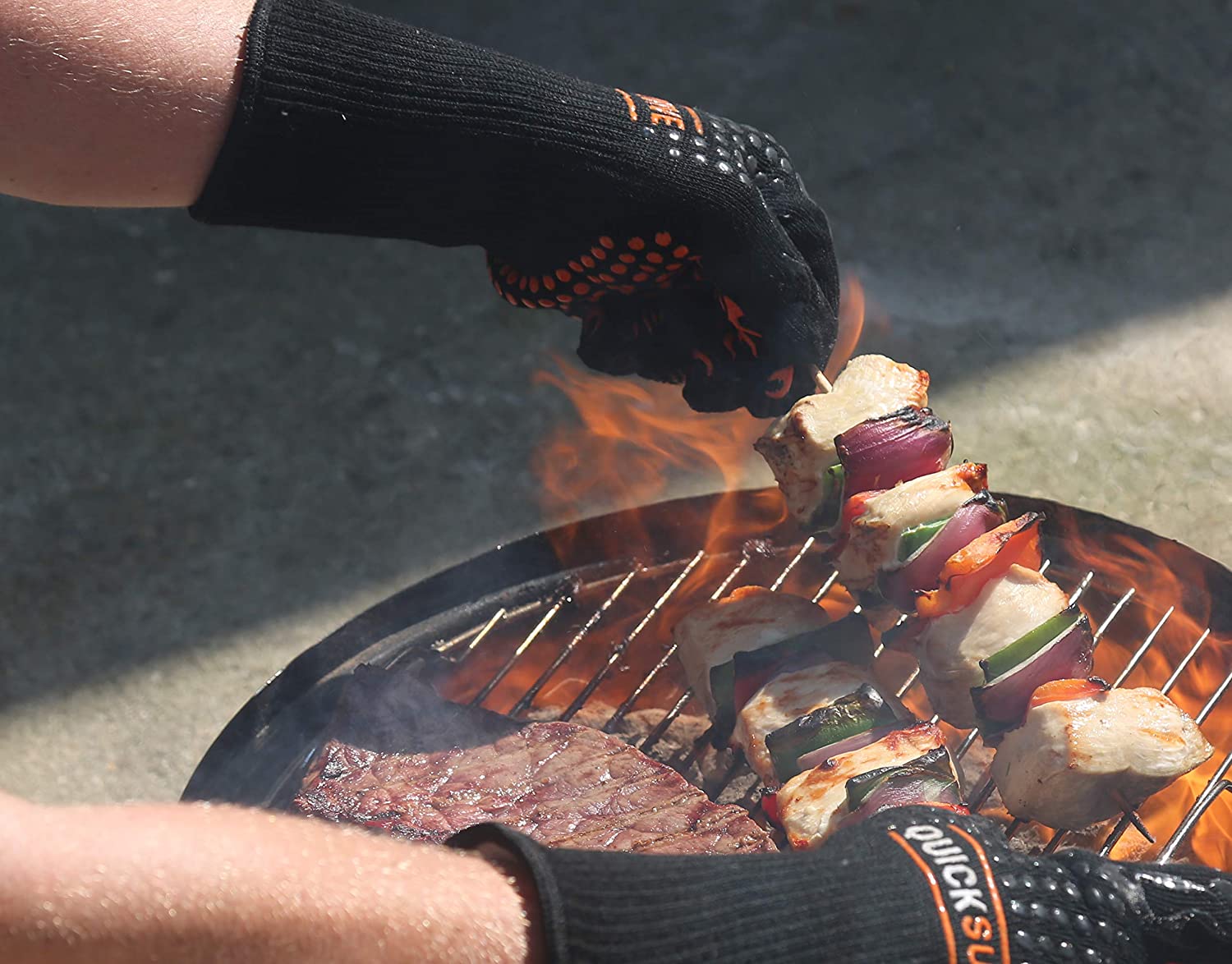Introduction to Grilling Safety
Welcome to “Grilling Safety 101,” your comprehensive guide to ensuring a safe and enjoyable outdoor cooking experience. Grilling is a beloved pastime, but it’s essential to prioritize safety to prevent accidents, burns, and property damage. By following these essential tips, you can confidently grill with peace of mind and create memorable moments with family and friends.
Importance of Grilling Safety
Grilling can pose various hazards if not approached with caution. From fire accidents to burns and gas leaks, understanding the importance of grilling safety is paramount. Prioritizing safety not only protects yourself and loved ones but also preserves the integrity of your property. By adopting a safety-conscious mindset, you can fully enjoy the pleasures of outdoor cooking.
Preparing a Safe Grilling Environment
To ensure a safe grilling environment, start by selecting a suitable location. Choose an area away from flammable materials, such as overhanging branches or dry grass, and opt for a well-ventilated space to disperse any potential gas buildup. Additionally, clean and inspect your grill before each use to ensure it is in proper working condition. Remove grease buildup and check for any damage or malfunctioning parts. Properly position your grill, keeping it stable on a flat, level surface to prevent tipping accidents.
Safe Handling of Fuel and Ignition
Grilling safety also encompasses the safe handling of fuel and ignition methods. Whether you’re using charcoal, gas, or pellets, it’s crucial to understand the specific safety considerations for each fuel type. Follow the manufacturer’s instructions for handling, storing, and transporting fuel to prevent accidents and minimize the risk of fuel-related incidents. When lighting the grill, use the appropriate ignition method recommended for your specific grill type and avoid using excessive amounts of fuel to reduce the likelihood of flare-ups.
Fire Prevention and Control
Preventing and controlling fires during grilling sessions is essential. To prevent flare-ups, start by ensuring your grill is clean and free from grease buildup. Regularly remove excess grease from the drip tray to minimize the risk of grease fires. In case of an unexpected fire, be prepared with a fire extinguisher nearby, rated for outdoor use. Familiarize yourself with the operation of the fire extinguisher and keep a lid or fire blanket handy to smother flames if necessary.
Grilling Utensils and Personal Safety
Using appropriate grilling utensils and observing personal safety measures is crucial to prevent accidents and burns. Opt for long-handled utensils to maintain a safe distance from the heat source and minimize the risk of burns. Additionally, consider wearing heat-resistant gloves and aprons to protect yourself from heat and potential splatters. When handling sharp tools like knives or skewers, exercise caution and ensure proper storage to avoid accidental injuries.
Food Safety Considerations
While grilling is primarily about creating delicious meals, it’s vital to practice proper food safety. Avoid cross-contamination by using separate utensils and cutting boards for raw and cooked foods. Ensure that meat and poultry reach their appropriate internal temperatures to prevent foodborne illnesses. Invest in a reliable meat thermometer to accurately gauge the doneness of your grilled meats.
Supervision and Child Safety
Grilling should always be supervised, especially when children are present. Designate a safe distance between children and the grill, ensuring they understand the potential dangers of hot surfaces and sharp objects. Establish clear boundaries and educate children on the importance of grill safety to instill responsible behavior around the cooking area.
Emergency Preparedness
Even with preventative measures, emergencies can still occur. It’s crucial to be prepared to handle common grilling emergencies effectively. In the event of a small fire, have a fire extinguisher readily available and know how to use it. If a burn occurs, promptly cool the affected area under cold running water and seek medical attention if needed. In case of a gas leak, turn off the fuel source immediately and contact emergency services for professional assistance.
FAQ
Q: How often should I clean my grill?
A: It is recommended to clean your grill thoroughly before and after each use to prevent grease buildup and maintain optimal performance.
Q: Can I use water to extinguish a grease fire?
A: No, water can exacerbate a grease fire. Instead, use a fire extinguisher rated for outdoor use or smother the flames with a lid or fire blanket.
Q: What should I do if my gas grill has a leak?
A: If you suspect a gas leak, turn off the fuel source immediately, evacuate the area, and contact emergency services. Do not attempt to use the grill until a professional has inspected and repaired it.
Conclusion
Grilling safety is the cornerstone of an enjoyable outdoor cooking experience. By following these essential tips, you can minimize risks, prevent accidents, and create a safe environment for everyone involved. Prioritize location selection, proper grill maintenance, safe fuel handling, fire prevention, personal safety, food safety, and supervision. With these precautions in place, you can grill with confidence, knowing that you’re taking the necessary steps to protect yourself, your loved ones, and your property. Happy and safe grilling!
